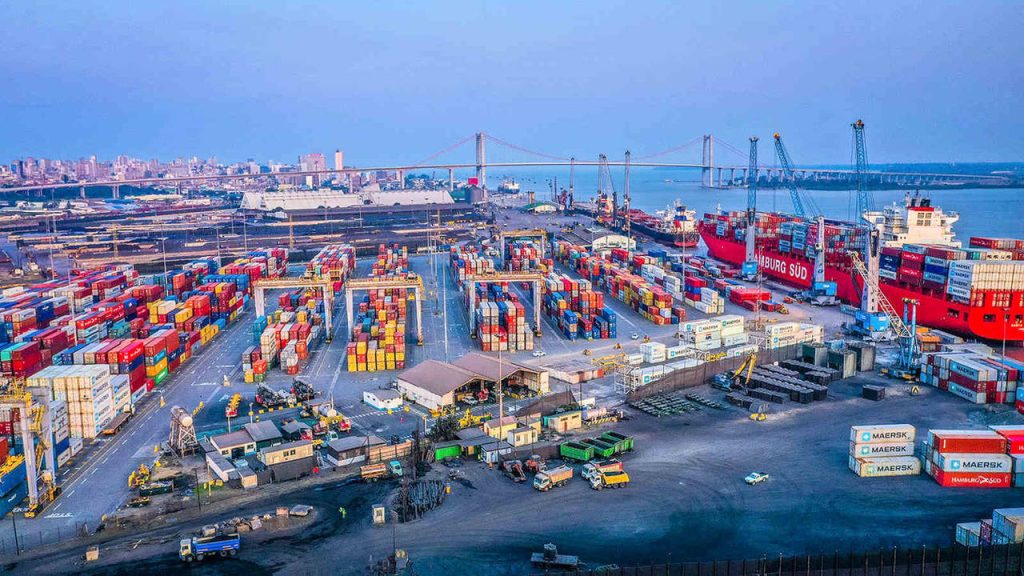- The Port of Maputo increased volumes by 16% to a record 31.2 million tonnes as more exporters seek alternatives to South Africa’s Durban and Richard’s Bay ports.
- The port is operated by a private company on behalf of the Mozambican government.
- About 90% of the cargo originates from South African mines in Limpopo and Mpumalanga, diverted to avoid the logistics crisis in the country.
The Port of Maputo appears to be using the logistics crisis in neighbouring South Africa to good effect. It increased volumes of product shipped by 16% in 2023, topping a record 31.2 million tonnes. The Maputo Port Development Company (MPDC), a public-private partnership that operates the port on a concession, said on Tuesday this growth serves to consolidate the port’s position as one of the region’s main economic drivers.
About 90% of the commodities are minerals originating from mines in South Africa, which has the biggest and busiest ports in Africa. Other commodities originate from landlocked neighbours Zimbabwe, Eswatini (formerly Swaziland), Botswana and Malawi.
The South African minerals, approximately 25 million tonnes of the volumes shipped through Maputo, include chromium, ferrochrome, magnetite, coal, phosphate, vanadium, titanium, copper and vermiculite, which can be used in farming. “The handling of these cargoes reflects the diversification strategy on which the Port of Maputo has focused in recent years,” said Osório Lucas, MPDC’s chief executive officer.
The port will soon reach the port’s current maximum capacity of 37 million tonnes.
Due to the railway and port crisis choking Transnet’s operations, many South African miners have diverted their cargo to neighbouring Maputo, which is roughly the same distance as Durban from the major mines of Mpumalanga and Limpopo. While the majority of cargo to Maputo is still on the railway, the miners have also turned to trucks and moved their bulk commodities away from Transnet’s trains as the state-owned railway and ports operator has not been able to guarantee timeous deliveries for at least four years.
“Although there is growth in rail handling, demand for the port has grown exponentially and so we will continue to work with the Mozambican Railway Company to seek a better balance between rail and road cargo,” said Lucas.
The MPDC operates the port on behalf of the Mozambican government. The current concession will run until 2033. Another 25-year extension was agreed in principle late in 2023. This agreement is subject to a negotiation of the contract terms with Mozambique’s transport department.
The Mozambican Railway Company holds a 49% stake in the MPDC while South Africa’s shipping company Grindrod, DP World, and Moçambique Gestores own the majority of the shares through Portus Indico, said spokesperson Soraia Abdula.
Perhaps as an indication of the state of South Africa’s railway infrastructure, two Transnet trains transporting coal on the Richards Bay coal export line collided on Sunday, closing one of Transnet’s busiest logistics routes.
Transnet Freight Rail (TFR) does not have a digitised train management system to track trains and relies on signalling and phone communication to schedule trains and manage their movement. Signalling equipment is frequently stolen, making phone communication between the train control operator and driver the only way of avoiding collisions.
Initial and unconfirmed reports from inside Transnet indicate that Sunday’s accident resulted from human error when a shift change failed to alert the incoming shift of a stopped train on the line. The train had stopped because of a power outage in Richard’s Bay on the line ahead.
The incident, which took place at Elubana in northern KwaZulu-Natal, followed two near-collisions in recent months at the same spot, where an oncoming train stopped just short of colliding with the train on the line.
Transnet said its freight volumes during the year ended March 2023 dropped to the lowest level since 1994.
© News24
